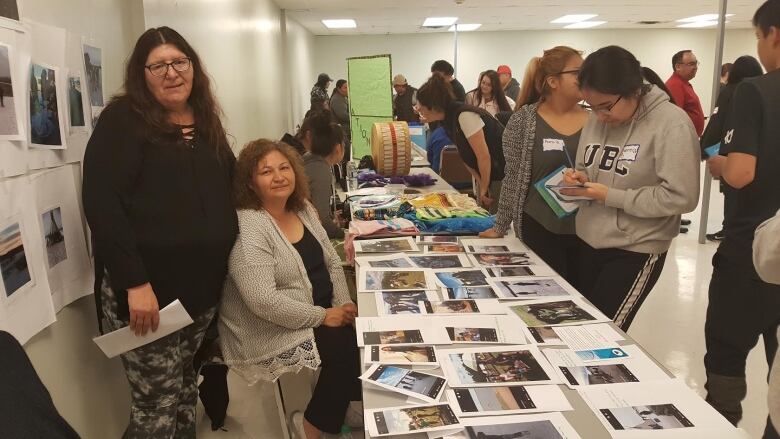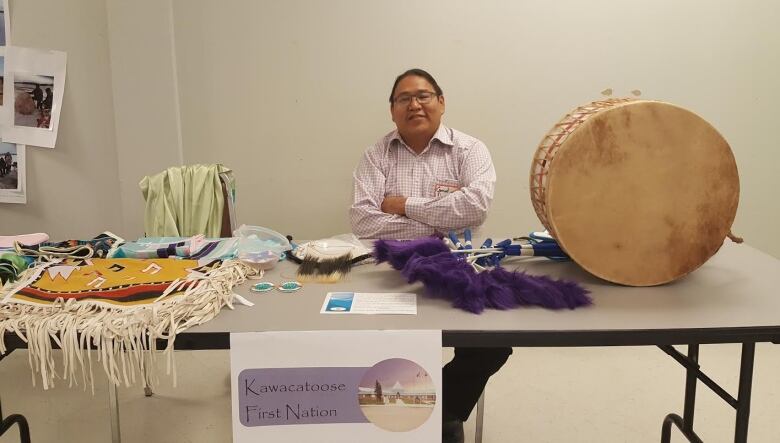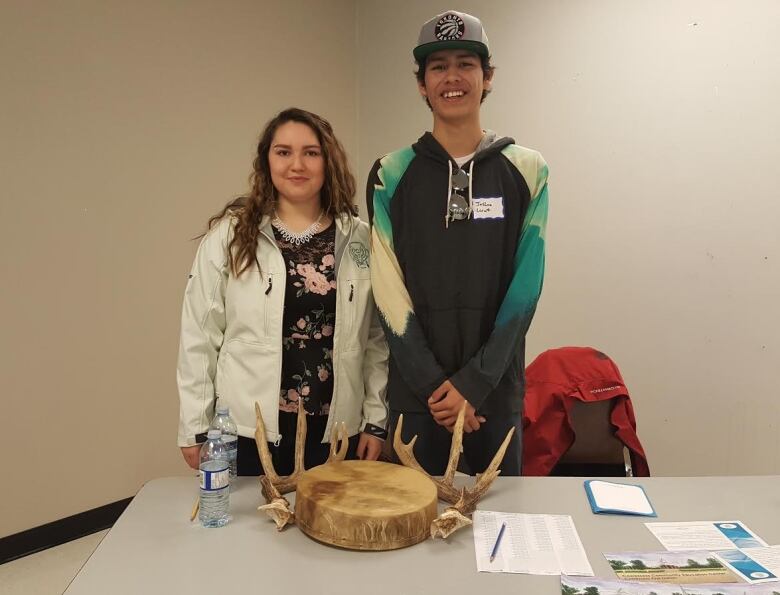'It's to bring back our culture': First Nations schools collaborate to create on-the-land learning
'We need our young people to carry on our way of life': Saulteaux language teacher

First Nations schools across southern Saskatchewan are collaborating on new ways to engage students outside of the classroom and on the land.
Earlier this month students and teachers within the Treaty 4 Education Alliance met in Fort Qu'Appelle, Sask., to share the land-based education programs they're implementing.
People of all ages perused vivid displays depicting everything from children skinning rabbits to communities building a greenhouse in hopes of inspiring more on the land learning down the road.
The event was organized by Learning the Land, a program created by the Nature Conservancy of Canada and the Treaty 4 Education Alliance. It combines Indigenous culture and teachings with scientific knowledge about conservation.
'It's to bring back our culture'
"It's to bring back our culture. It's the best way to go," said Sandra Kayseas, a Saulteaux language teacher at Fishing Lake School.
"We're losing our language, our elders our passing, we need our young people to carry on our way of life."
We're losing our language, our elders our passing, we need our young people to carry on ourway of life.-SandraKayseas,Saulteauxlanguage teacher
Kayseas said she routinely takes students out fishing and hunting"so they can learn to scale their own fish, skin the animals they catch, and cut up the meat.
"That's the way we used to live, and we need to keep that alive."
Kayseas described the students as "nervous at first," but said they "beam with pride once they realize they can do it."
Teaching children
ConradDesjarlais, the cultural coordinator withKawacatooseFirst Nation, said his reserve is teaching children to make their own regalia from head roaches to dresses and create their own drumsticks and drums.
'We're losing our culture in a very fast pace, but we're slowly bringing it back for them," Desjarlais.
While Desjarlais said "most students, they want to learn.... sometimes it's heartbreaking," when attendance levels don't reflect his desire to pass on the traditional teachings he grew up with.

Nevertheless, Desjarlais is feeling hopeful that events like this will encourage more students to come out to learn "these ways of our people."
Students want to share learnings
The day's events weren't lost on many of the students who attended,including Bavanne Cote, a Grade 10 student at Cowessess Community Educational Centre School.
"It's actually really influencing because I can take what I'm learning back and show the others and the community what we could do to engage more traditional things in our school."
Cote wants to see things like "skirt making, beading, hunting," featured more prominently ineveryday curriculum.
"I want to teach my sisters how to hunt, and my brothers can be taught how to make a hand drum or to set up a teepee."

Cote's schoolmate, Grade 11 student Josh Lerat, agrees.
"The environment is basically all we have, so I'm really happy we're learning about that.
"I'd like to teach my younger brothers about the outdoors, traditional teachings, how to respect the land and the animal.I think it's really important to show the younger people those traditions."












_(720p).jpg)


 OFFICIAL HD MUSIC VIDEO.jpg)
.jpg)



























































































